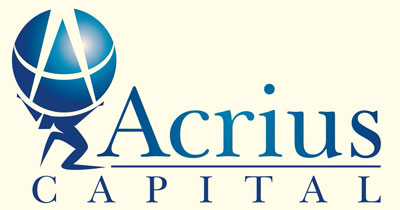This is a fantastic and extremely relevant article by Cyndia Zwahlen from the Los Angeles Times. The last quote by former business owner Ken Bowers truly sums up the problem for most if not all business owners:
""Probably the worst thing on a small-business owner is giving up. It's not in our nature," Bowers said. "My advice: Separate your emotions from the reality … and accept that you are not going to make it."
ABCs can make going out of business smoother and quieter
Lesser-known option to bankruptcy avoids courts, which can save money and time. But it is appropriate for a limited number of situations and owners are still responsible for personal debt guarantees.
By Cyndia Zwahlen
January 3, 2011
After three years of trying to make a success of his small Cerritos company that manufactured corrugated boxes, Ken Bowers was in deep financial trouble. He and his wife, Jeannie, had been pouring their own money into the company in a last-ditch bid to save it, but the firm was too far gone. Instead of a business bankruptcy filing, however, Bowers' banker proposed a different way out.
"He suggested we file an ABC," said Bowers, referring to a process technically known as a general assignment for the benefit of creditors. ABCs have been around for more than a century and supported by California law since the 1930s, said Michael Joncich, who oversees the general assignment unit of the Credit Management Assn. in Burbank.
But few business owners were familiar with them.
"I'd never heard of it but learned it's a way to liquidate the business and it really doesn't put you so much at odds with your creditors," said Bowers, whose company once had 20 employees.
An ABC, under the right conditions, can go more smoothly than a Chapter 7 bankruptcy filing.
"Assignments are faster, more efficient and generally return better to creditors than bankruptcy cases," said Geoff Berman, vice president in the Los Angeles office of Development Specialists Inc. and author of a manual on ABCs published by the American Bankruptcy Institute, of which he is president-elect.
Both processes end with the sale of a company's assets. But an assignment in California is not court supervised, and that can save time and costs. An ABC is also usually a more private process.
Instead of a U.S. Bankruptcy Court appointing a trustee to liquidate the company, the business owner hires an assignee — often an insolvency lawyer or specialist with experience in ABCs — to sell the company's assets and distribute the proceeds to creditors. The assignee has a fiduciary duty to try to get the highest price for the assets.
"We signed the assignment and right away [the assignee] took over everything," said Gurmeet Singh, who used an ABC to close his formerly 40-person business, Precision Gear of Corona, two years ago. "He had a locksmith right there and he got the locks switched and we were out of business. Then he got some people in to take inventory of things."
But an ABC is appropriate for only a limited number of situations. They are not a good fit for a company that isn't incorporated. Without the legal shield that incorporation provides, owners can be held responsible for company debts. If a business owner has made a personal guarantee to cover a debt, an ABC won't wipe that out either. That was an unfortunate hitch for Bowers, who took out a Small Business Assn. loan to buy factory equipment. He used his house to guarantee the loan.
"I don't want to mislead people, because one thing is, to the extent they have made personal guarantees, whether it be for a product or on their loans, they are not released from those" in a general assignment or a bankruptcy filing, said attorney Robert L. Cohen, who runs Alternative Bankruptcy Concepts Inc. in Buena Park.
Another restriction: If the business is upside down with a secured creditor — meaning that the debt owed is higher than the pledged collateral is worth — this secured creditor will need to agree to the ABC before it can go forward.
Finally, the biggest disadvantage to an ABC is that it does not completely close the door on creditors trying to collect what's owed them. A bankruptcy is more final.
Here is how the money flows in an ABC: After the sale, the assignee is paid from the proceeds. The amount of that pay can vary greatly, from about $25,000 to $100,000 when dealing with a small business. Some assignees get a flat fee, some collect a percentage of the proceeds and others get a combination of the two. Singh, for example, said his company's assets sold for $400,000. Out of that, the assignee was paid about $50,000.
After the assignee is paid, that person distributes the rest of the proceeds from the sale to creditors.
The process works best for business owners if the ABC is done before their firms fall too deep in debt. That's especially true if the owners are pouring their own money into the business in an attempt to save it.
That's what happened to Bowers and Singh. Even though their ABCs helped them pay off their companies' debts, both of them eventually filed personal bankruptcies.
Bowers said in retrospect that he should have sought debt relief much sooner.
"Probably the worst thing on a small-business owner is giving up. It's not in our nature," Bowers said. "My advice: Separate your emotions from the reality … and accept that you are not going to make it."
